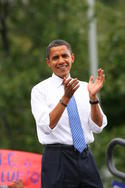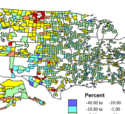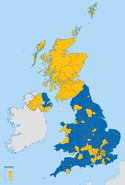Barack Obama came to office with a promise of “fundamentally transforming the United States.” Through what one admirer calls “a profound course correction engineered by relentless government activism,” Obama has, indeed, transformed the country and shifted it to what now passes for the Left agenda on America’s role in the world, the environment, gender issues, labor rights and untrammeled executive power over both Congress and local governments. read more »
Politics
Population Change, 2015: Not Very Good News for Those Angry White Men
Data on population growth from 2010 to 2015 show a continuing concentration of people in metropolitan areas, especially in the large areas with over a million people, where presumably traditional values are most challenged. I show an amazing table, in which I have disaggregated population change by type of settlement, from the million-metro areas to the purely rural counties, comparing growth amounts and rates, plus noting how these areas actually voted in 2012. read more »
- Login to post comments
Why the World Is Rebelling Against ‘Experts’
An unconventional, sometimes incoherent, resistance arises to the elites who keep explaining why changes that hurt the middle class are actually for its own good.
The Great Rebellion is on and where it leads nobody knows.
Its expressions range from Brexit to the Trump phenomena and includes neo-nationalist and unconventional insurgent movement around the world. It shares no single leader, party or ideology. Its very incoherence, combined with the blindness of its elite opposition, has made it hard for the established parties across what’s left of the democratic world to contain it. read more »
- Login to post comments
Trump's Racial Firebombs Weaken U.S.
The issue of race has scarred the entirety of U.S. history. Although sometimes overshadowed by the arguably more deep-seated issue of class, the racial divide is a festering wound that decent Americans, including politicians, genuinely want to heal. read more »
Brits Opt Out
The famous shot heard “’round the world” this time came from the other side of the Atlantic, but its longtime impact could be equally profound. By voting to leave the European Union and its intrusive bureaucracy, the British people have also risen up against a regime of crony capitalism that has encumbered and perverted democracy across the entire Western world.
The implications, of course, are greatest for Britain and Europe, but they will affect politics here in North America. The Brexit raises to first priority the more general debate about the trajectory of global capitalism which, for all its many accomplishments, has grown to resemble, in its haughtiness and inbreeding, the very statist despotisms that it was supposed to overturn. read more »
Vote For Brexit Explodes the Myth of the Global City-State
The UK has voted to leave the European Union.
The Brexit campaign was revealing because it was based on the exact opposite of the urban triumphalist vision that so often dominates the discourse. read more »
- Login to post comments
Working Class British Voters Led the European Union Rejection
On Thursday night the first results from Britain’s referendum on pulling out of the European Union came in.
A small clue to the way things were going last night was the vote in the North East. read more »
- Login to post comments
Brexit Will Be Britain’s Fourth of July
The campaign to take the United Kingdom out of the European Union, widely known as “Brexit,” is potentially on the verge of a huge victory Thursday despite overwhelming opposition in the media and among the corporate and political establishment. The outcome matters not just as an expression of arcane British insularity, but as evidence of a growing rebellion against the ever greater consolidation and concentration of power now occurring across all of Europe, as well as here in the United States. read more »
California's State Religion
In a state ruled by a former Jesuit, perhaps we should not be shocked to find ourselves in the grip of an incipient state religion. Of course, this religion is not actually Christianity, or even anything close to the dogma of Catholicism, but something that increasingly resembles the former Soviet Union, or present-day Iran and Saudi Arabia, than the supposed world center of free, untrammeled expression. read more »
It Could Have Been Huge
With Bernie Sanders now dispatched by Hillary Clinton and the Democratic Party machine, Donald Trump has emerged as the unlikely populist standard-bearer. Not since the patrician Julius Caesar rallied the Roman plebeians, or the aristocratic Franklin Roosevelt spoke for the “forgotten man,” has someone so detached from everyday struggles won over such a large part of the working and middle classes. read more »
- Login to post comments






















